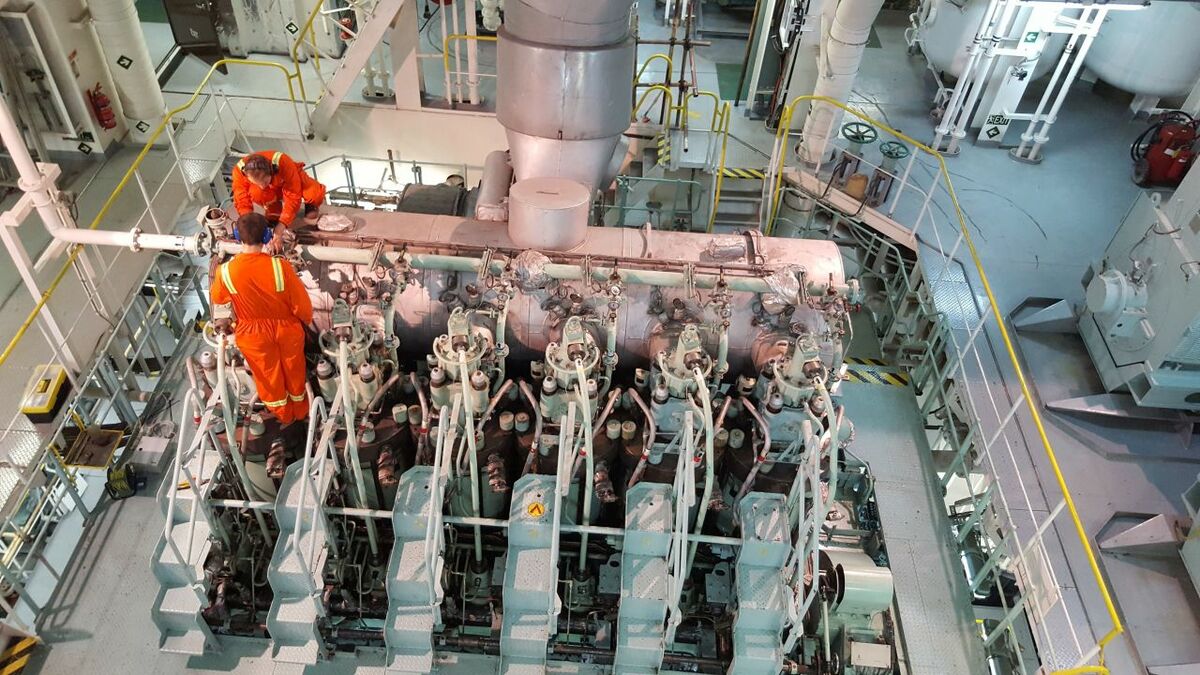
Proper engine maintenance is essential for ensuring smooth sailing on ships. Without a well-maintained engine, ships can experience costly breakdowns and delays. To avoid these issues, it is important for ship owners and operators to implement regular maintenance routines and follow best practices for keeping engines in top condition. Here are some engine maintenance tips to help ensure smooth sailing on ships.
First and foremost, regular inspections are crucial for identifying potential issues before they escalate into major problems. Inspections should be conducted by qualified engineers who have experience working with marine engines. During these inspections, engineers should check for any signs of wear and tear, leaks, or other issues that could indicate a problem with the engine. By catching these issues early, ship operators can prevent breakdowns and avoid costly repairs.
Another important aspect of engine maintenance is keeping the engine clean. Over time, dirt, grime, and salt buildup can accumulate on the engine, which can hinder its performance and efficiency. Regular cleaning of the engine, including the cooling system, fuel system, and exhaust system, is essential for ensuring that the engine runs smoothly. It is important to use the appropriate cleaning products and techniques to avoid damaging the engine components.
In addition to regular inspections and cleaning, it is important to follow the manufacturer's recommended maintenance schedule for the engine. This may include tasks such as changing the oil, replacing filters, and checking fluid levels. By following the manufacturer's guidelines, ship operators can ensure that the engine is operating at peak performance and efficiency.
Proper lubrication is also key to keeping the engine running smoothly. Lubricants help reduce friction between moving parts in the engine, which can help prevent wear and tear. It is important to use the right type of lubricant for the engine and to follow the manufacturer's recommendations for lubrication intervals. Over or under-lubricating the engine can lead to premature wear and damage, so it is important to get this right.
Monitoring the engine's performance is another important aspect of engine maintenance. Ship operators should regularly check key performance indicators such as temperature, pressure, and vibration levels to ensure that the engine is running smoothly. Any abnormalities in these indicators could be a sign of a potential issue that needs to be addressed. By monitoring the engine's performance closely, ship operators can catch problems early and prevent more serious issues from occurring.
In addition to monitoring performance, it is important to keep detailed records of all maintenance activities performed on the engine. These records can help ship operators track the engine's maintenance history and identify any patterns or trends that may indicate a recurring issue. Keeping thorough and accurate maintenance records can also help ensure that all maintenance tasks are completed on time and that nothing is overlooked.
Finally, it is important to train crew members on proper engine maintenance procedures. All crew members should be familiar with the engine and its components, as well as the maintenance tasks that need to be performed regularly. Providing training on engine maintenance can help prevent mistakes and ensure that all maintenance tasks are completed correctly and efficiently.
In conclusion, proper engine maintenance is essential for ensuring smooth sailing on ships. By following these engine maintenance tips, ship operators can keep their engines in top condition and avoid costly breakdowns and delays. Regular inspections, cleaning, following the manufacturer's maintenance schedule, proper lubrication, monitoring performance, keeping detailed records, and training crew members are all key components of effective engine maintenance. By implementing these best practices, ship operators can enjoy trouble-free sailing and peace of mind knowing that their engines are well-maintained and operating efficiently.